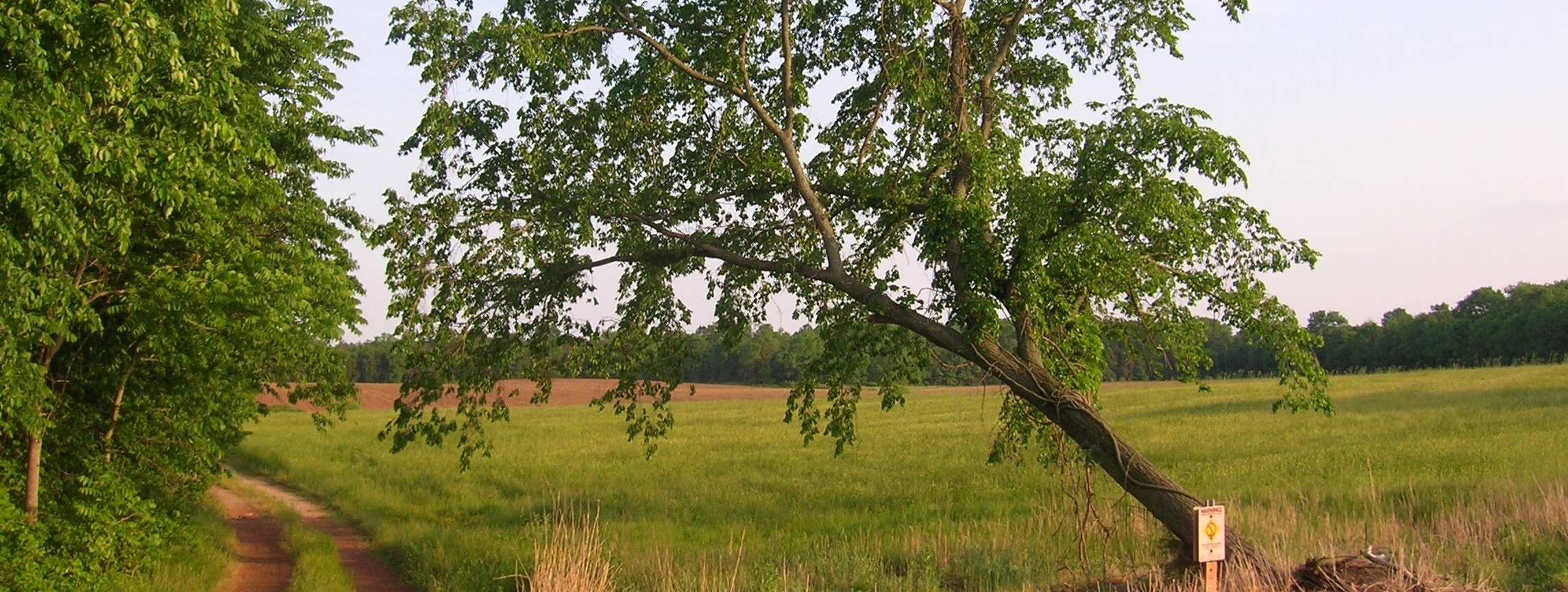On Otherness
A lopsided tree in the back field of the farm I grew up on, next to the railroad tracks. A dirt driveway runs next to it to the field behind.
I think a lot about Otherness - both my proximity and distance from it and the way that Otherness shapes my life, my work and my relationships.
As previously mentioned, I grew up on a dairy farm in Virginia. Many people that I met in my post-Virginian life are surprised by that - by the Southernness, the country-ness (rurality?), the actual farm. We were a family of transplants in a county made up of poor to middle class families who had been there for generations. It was well acquainted with racial Otherness (see this essay on the desegregation of the high schools in 1969), but only in the context of Black vs. White. My family was a different kind of Other that no one really knew what to do with.
My father was born in Tel Aviv and grew up on a kibbutz. My mother was born in New Jersey and raised abroad (Brazil, Mexico, Japan). She went to Georgetown and wanted to be near Washington, DC; Dad wanted to work on a farm. And so they ended up an hour outside of the city and raising a family in a world that was, in many ways, different from any world they lived in before. Their kids (me and my sisters) went to the local public schools, surrounded by people confused by how, exactly, we ended up there, what, exactly, Judaism was. None of us had great answers. We didn’t have accents (except my father, who has a very heavy Israeli accent), we didn’t go to church, we look what I like to refer to as “vaguely ethnic.” We made weird food and taught our elementary classes about the High Holidays. Eventually that moved to well-intentioned friends (hi, “Christian Chris!”) trying to save our souls from eternal damnation which in turn led to all of the children moving away and into cities.
I grew up feeling very Other and have allegiances to Otherness. We were outspoke lefty, weirdo Jewish women who moved North, of all places, for college with a father who is decidedly an immigrant. But I am also, let’s be clear, very very White. I have the perks of Whiteness - the intergenerational wealth, the access to education and privilege, the ability to pass unnoticed by most. I do get the occasional “where are you from” that is definitely not about Virginia but is often unchallenged. My vague ethnicity can make me from anywhere on the Mediterranean (someone thought an Italian friend and I were twins) or South America. Or Iraq, for that matter - but I’m not Iraqi, I’m half-Israeli. And Israel (and Italy and Spain and Argentina and the other likely guesses) is generally (and racistly) considered Unproblematic, which is to say White. My father’s Israeliness also keeps him generally safe at the border, unlike many who look and sound like him. He - and by proxy we - are immigrants whose immigrant status is often dismissed.
(The politics of Israel and the rise of anti-Semitism is another matter that can be a later conversation.)
The work that I do - and that really all of us does no matter your job, it just depends on if you’re willing to admit it or not - requires that I reckon with my Whiteness and my Otherness regularly. My Whiteness, in many ways, surpasses my Otherness when it comes to equity and inclusion. I may have internal, complicated feelings about the matter but it doesn’t make me any less of a White lady taking space where Black and Brown people could be speaking instead. And so I’m eternally learning how to balance my desire to stand up and my need to sit down and how to be both Other and Not-Other. (That is, also, a dichotomy that any and all women live with always, what with half of the population being considered a derivation from the norm despite being, you know, half of the population.) And especially as I work to build new systems and institutions, the conversation has become more constant. I continually learn where I am welcome and where I am not, how to use both my Whiteness and my Otherness to my advantage, and where it is a disadvantage.
This - as you can tell by this somewhat rambling post - a question mark more than a statement. And as I continue to process through it I will continue to talk about it and I hope you will too.
